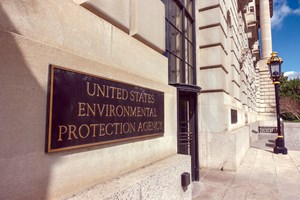St. Louis scrap metal facility violated Clean Water Act with uncontrolled stormwater runoff, EPA alleges
(UI) – SA Recycling LLC of St. Louis, Missouri, will pay $68,000 in civil penalties to resolve alleged violations of the federal Clean Water Act. According to the U.S. Environmental Protection Agency (EPA), the company failed to adequately control stormwater runoff from its scrap metal recycling and processing facility. EPA says that these failures could result in illegal discharges of pollution into the Mississippi River.
In the settlement documents, EPA alleges that SA Recycling failed to comply with certain terms of its Clean Water Act permit, including failure to update and implement practices to prevent stormwater runoff of pollution, failure to perform inspections, and failure to train employees on stormwater management practices.
In addition to paying the penalty, SA Recycling is correcting the alleged violations through implementation of an EPA compliance order. EPA estimates it will cost the company around $44,000 to comply with the order.
EPA identified that the community surrounding SA Recycling’s facility was a potentially sensitive location for air pollution, lead-based paint, hazardous waste, and wastewater discharges. EPA is strengthening enforcement in such communities to address disproportionately high and adverse human health or environmental effects of industrial operations on vulnerable populations.
Under the Clean Water Act, industrial facilities that propose to discharge into protected water bodies are required to obtain permits and to follow the requirements outlined in those permits to reduce pollution runoff. Failure to obtain a permit or follow the requirements of a permit may violate federal law.
“Uncontrolled runoff from industrial facilities not only harms streams and rivers, but it also limits the public’s use and enjoyment of those waters,” said David Cozad, director of EPA Region 7’s Enforcement and Compliance Assurance Division. “This settlement demonstrates EPA’s commitment to protecting vital watersheds, especially in areas overburdened by pollution, and creating a level playing field with businesses who are complying with the law.”
Related News
From Archive

- Glenfarne Alaska LNG targets late-2026 construction start for 807-mile pipeline project
- U.S. water reuse boom to fuel $47 billion in infrastructure spending through 2035
- $2.3 billion approved to construct 236-mile Texas-to-Gulf gas pipeline
- Major water pipe break in Puerto Rico hits over 165,000 customers
- Potomac River Tunnel project enters construction phase beneath Washington, D.C.
- Pennsylvania American Water launches interactive map to identify, replace lead water service lines
- Trump's tariffs drive $33 million cost increase for Cincinnati sewer project
- Utah city launches historic $70 million tunnel project using box jacking under active rail line
- Tulsa residents warned after sewer lines damaged by boring work
- Fatal trench collapse halts sewer construction in Massachusetts; two workers hospitalized




Comments